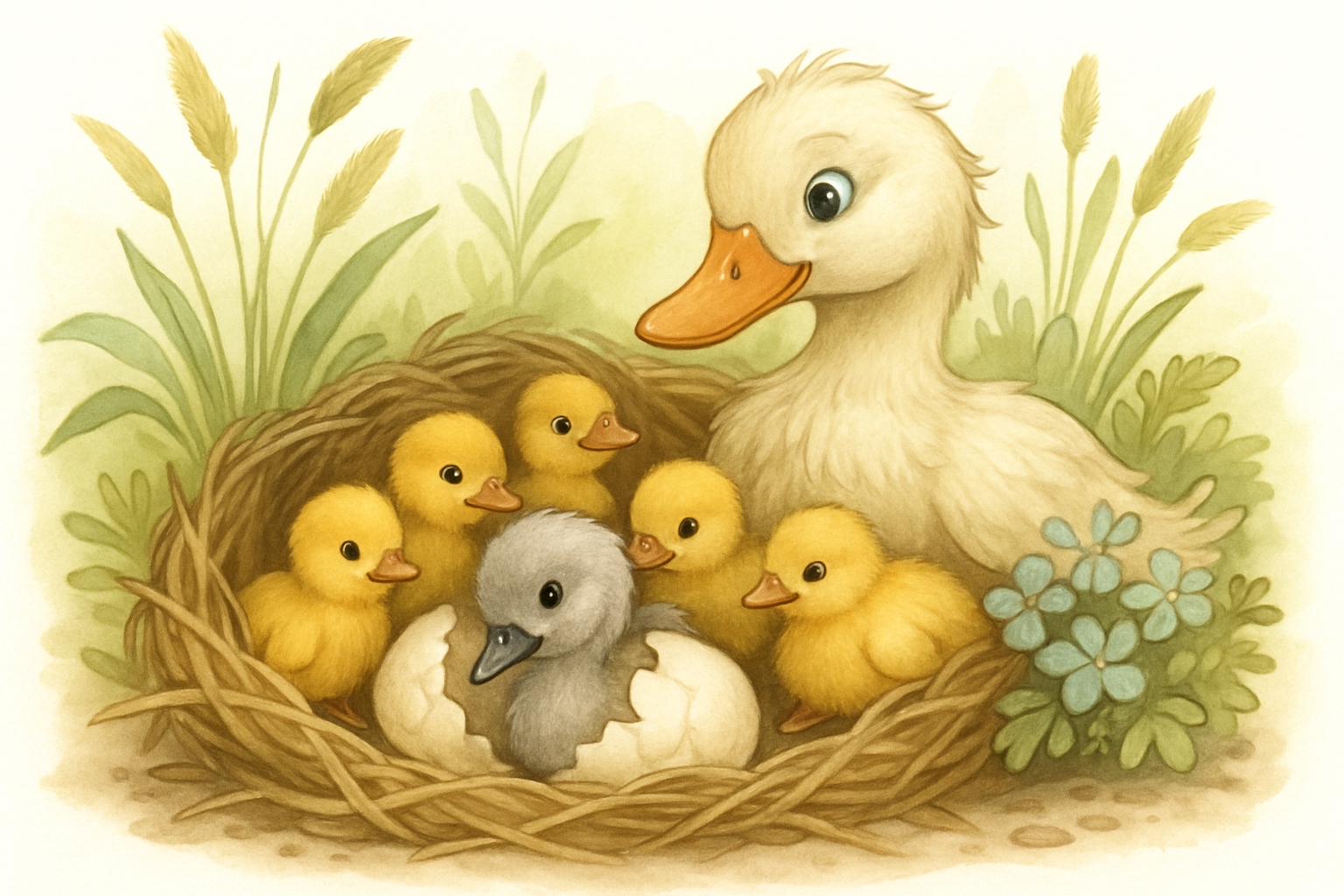
The Ugly Duckling
The beloved fairy tale with beautiful illustrations teaching a lesson about self-acceptance and inner beauty.
⏱️42 min👶6-8🏷️#Animals

The beloved fairy tale with beautiful illustrations teaching a lesson about self-acceptance and inner beauty.